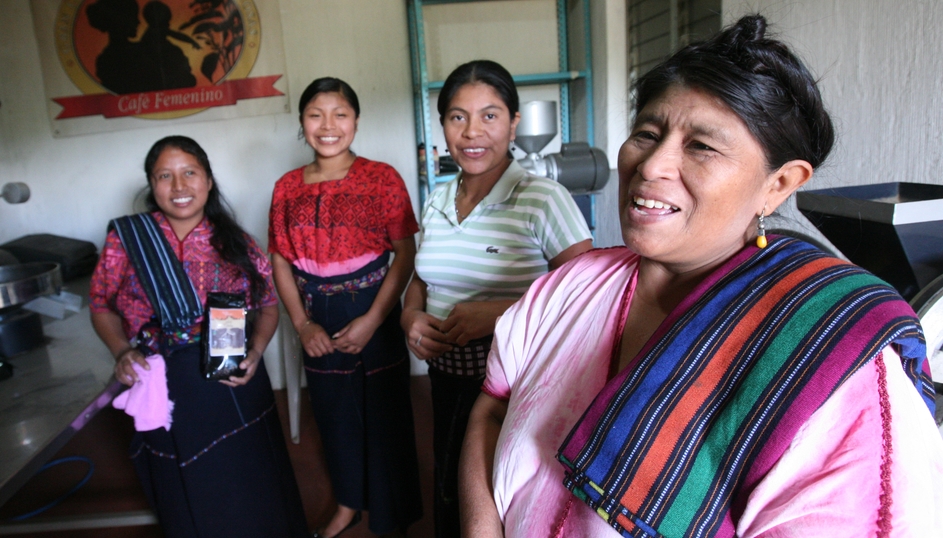
Members of the women-only group that produce “Café Feminino” at the Nuhaulá cooperative.
In early September, we released our second issue brief, Applying a Gender Lens to Agriculture: Farmers, Leaders, and Hidden Influencers in the Rural Economy, which chronicles our experience working to empower women throughout the economic continuum. This post is the first in a series of snapshots meant to illuminate the different roles that women often play in agricultural businesses. The snapshot below, originally published in the issue brief, focuses on women at the base of the economic continuum: women farmers.
When farmers are women, research shows additional impact, including a focus on the nutrition and educational needs of children, women’s increased self-esteem, and stronger decision-making voice in the home and community. Smallholder farmers, especially women farmers, are a linchpin for meeting rising resource challenges and investing in women is a key way to promote food security for individuals, families and entire communities.
The members of the Nuhaulá coffee cooperative profiled below are some of the 84,000+ women farmers we’ve reached since 2011, and we’re just getting started. By 2016, we will finance 200 gender inclusive businesses and reach 200,000 female producers.
____________
In the highlands of Guatemala, where 76 percent of the population is considered poor, Nahualá coffee cooperative sources beans from 160 smallholder farmers, including 70 women. Nahualá sells most of its coffee certified as organic and fair trade to specialty coffee buyers in North America and Europe. In 2004, Nahualá began to export a portion of its coffee through a program called Café Femenino, a social-business brand of coffee developed by Organic Products Trading Company (OPTCO) which markets coffee exclusively from women. In 2013, Nahualá exported 20,000 pounds of coffee under the Café Femenino brand (about one fifth of its total export) for an additional $0.02 per pound premium.
As a result of Nahualá’s participation in Café Femenino, more women have joined the cooperative. Importantly, in a sector in which men typically collect payment, the women of Nahualá, in accordance with Café Femenino rules, are paid directly, which gives them enhanced visibility of cash flows. Nahualá’s women members attend cooperative trainings as often as their male counterparts, although they are still less likely to participate in the cooperative’s assembly meetings, indicating that they continue to be underrepresented in decision making at the organizational level. While women still perform “women’s tasks” on the farm, such as harvesting and sorting, they are increasingly involved in the steps of coffee production traditionally restricted to men, such as pruning and fertilizer application.
Maria Susana Guarchaj Tahay has been a member of Nahualá for two years, selling her coffee for a premium through the Café Femenino brand. She views coffee as an integral part of the well-being of both her community and her own family. She and her husband plan to pass down their coffee farm to their three children, and income from their coffee sales pay for important expenses such as their children’s school fees.
“Coffee is an asset in this community and has helped us meet many of our needs,” she says. “As coffee producers, we have been able to access credit through the cooperative. Coffee is what keeps us fed and gives sustenance to the family.”

What do you think?